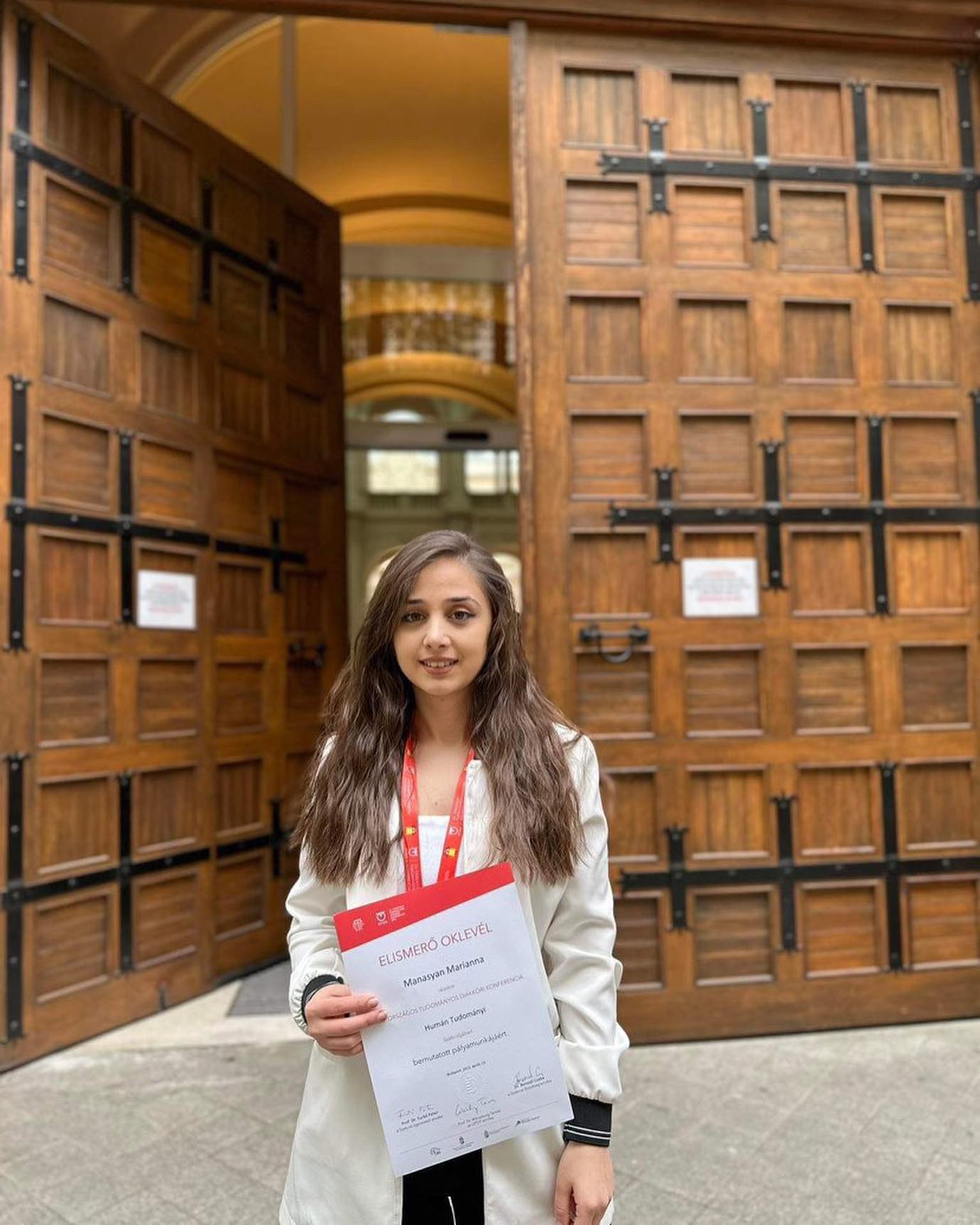Interview III
Marianna Manasyan
Images/Perceptions of Armenia in Diaspora Armenian Films
(Special Award)

Dear Marianna, you have received a special award for your thesis on Diaspora Armenian Films. Please tell us a few words about your choice of the topic.
My motivation for the choice of the topic became the university courses on Armenian Diaspora and Diasporic Literature held by Professor Karen Jallatyan. As we got acquainted with the Armenian diaspora and analyzed Armenian diasporic literature, I was curious about the other fields and methods the voice of Armenian diaspora stands in the world. I was brought up in homeland (Armenia) and it was fascinating to view how Armenians abroad turn to Armenia and what their feelings are towards Armenia. First of all, watching films is one of my favorite activities which helped me to devote myself to this research with eagerness. In addition, it seemed to me that the Armenian diasporic cinema has long been a circle rarely touched and precisely analyzed.
What do you think? How relevant this topic is nowadays?
The process of studying the field itself became inspiring and many hidden elements of the Armenian diaspora came to the surface. Watching the films revealed the problems and lack of categorizations in diaspora Armenian cinema. It was interesting to learn about national films and cultures by exploring films that depict the national experience from a diasporic perspective. The research shows that there can be no singular identical Armenian culture and cinema. Armenian culture is a mixture including elements originated by Armenians with quite distinct experiences. The experience of Armenians outside of Armenia makes ground for multiculturalism and global culture. Thus, this research views and includes diaspora Armenian cinema together with national Armenian cinema into global culture and cinema.
What kind of approach did you give to the topic? More cinematographic or historical?
The uniqueness of the topic comes from the fact that it encompasses both cinematographic and historical fieldwork. On the one hand, it focuses on the visual culture, the films themselves being the primary sources, on the other hand, it turns to the historical field as the point most of the films include is the Armenian genocide. It also deals with the history of national and diasporic cinemas in general, paralleling and making the Armenian cinematographic experience part of the global acknowledgment of cinemas.
Please, tell us more about your expectations of winning the special award. How exciting was the result?
Actually, the written reviews from the OTDK were encouraging and promising. The Armenian Department and I were doing our best for presenting the topic in the final conference properly. This project could not have been successful without all these efforts.
Interviewer: Anna Galstyan


